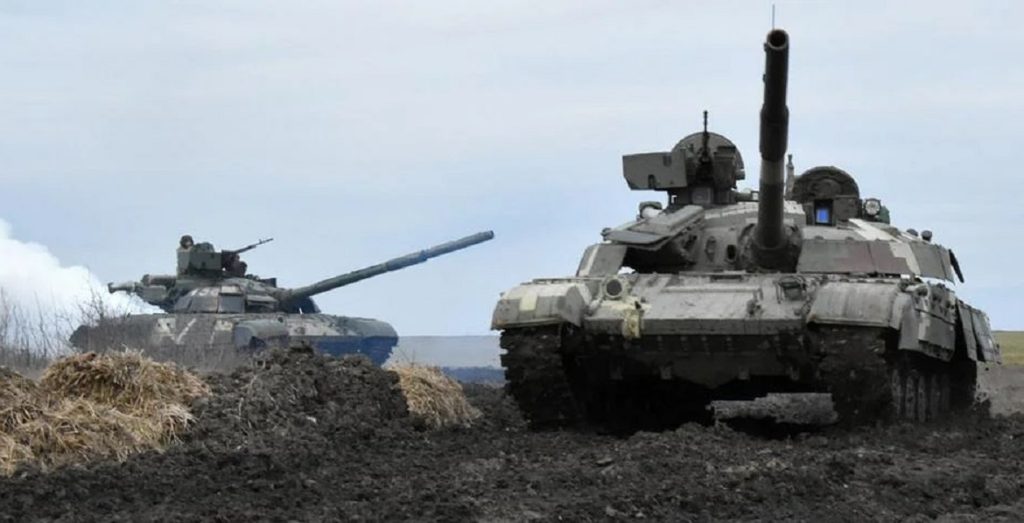World Strategic Insights interview with Dr. Mohammed Issam Laaroussi on changes in geopolitics and world order.

Mohammed Issam Laaroussi is a Moroccan professor of International Relations and former director of research and strategic studies at TRENDS Research & Advisory. Dr. Laaroussi is an expert in analyzing the evolving multidimensional aspects of strategic and security issues, with over 20 years of experience. He is the author of the book entitled: “The Armed Conflicts and Geopolitical dynamics of change in the Middle East and North Africa”, published in 2020.
-According to most experts, Russia’s military invasion of Ukraine has disrupted the existing world order, including the global systems of energy, production, distribution and finance, and undermined the entire geopolitical order. What are your thoughts on this? Is the war in Ukraine profoundly changing geopolitics and global governance? Is it possible to assess the long-term consequences of the current crisis? What might the next world order look like?
Russia -Ukraine war reveals a lot of features of international order change. It’s so complicated to describe the measures and the paths of transformation that the world may undergo in the light of the Russia military escalation and Ukraine resistance. Certainly, Russia’s Invasion of Ukraine is Likely to Alter the Post-World War II International Order.
The major trend of confrontation of blocs; only the borders of the Western bloc have shifted eastward compared to the time of the Cold War. Peace in Europe is a thing of the past, and trust in Russia has been completely destroyed. I think It will take decades to restore trust between the West and Russia. In the same context the international security balance would be capitalized only in the way of avoiding any profound alliance between Russia and China.
Till now there is no military coalition between Russia and China. But China will not permit the west victory against Russia and will probably remain behind Moscow, supporting it economically, especially with the Chinese growing need for Gas and oil. The security equation is so hard to be concretized as we cannot reach the winner- loser probability. The US refuses any direct intervention in Ukraine, as Biden announced in his speech that this war is not an American war as it is not affecting national Security. The American military withdrawal from Afghanistan is a big sign of the American non-interventionism doctrine adopted by the American administration.
For good measure, the United States would enjoy a much better geopolitical advantage in overcoming China: “China is the only country to reshape the international order and, increasingly, the economic, diplomatic, military and technological power to do it
However, this war will increase demand for U.S. “nuclear umbrellas” in Asia and Europe. South Korea and Japan are debating redeployment of U.S. nuclear weapons; Finland and Sweden have applied to join NATO. Pressures to expand the U.S. nuclear arsenal are growing, potentially reversing a three-decades-long trend of arms reductions and creating new dangers of nuclear use. With concerns about U.S. commitments to its alliances at an all-time high owing to the Trump administration’s threats to withdraw, some U.S. allies may choose to develop their own nuclear weapons, with untold consequences for the international order.
On the Economic level, The Russia-Ukraine conflict has triggered turmoil in the financial markets, and drastically increased uncertainty about the recovery of the global economy. Higher commodity prices intensify the threat of long-lasting, high inflation which increases the risks of recession and social unrest.
Certain sectors such as automotive, transport or chemicals are more likely to suffer. The Geo-economic fact will not be the same as it was in the Past. The economic crisis due to the Ukraine crisis will undermine the geopolitical order. According to the realistic approach, the economic recession will impact the entire world in terms of the poor economic growth internationally. The Russian economy will be in great difficulty in 2022, falling into a deep recession. Because of its dependence on Russian oil & natural gas, Europe appears to be the region most exposed to the consequences of this conflict. Replacing all Russian natural gas supplies to Europe is impossible in the short to medium run and current price levels will have a significant effect on inflation.
In the rest of the world, the economic consequences will be felt mainly through the rise in commodity prices, which will fuel already existing inflationary pressures. As always when commodity prices soar, net importers of energy & food products will be particularly affected, with the specter of major supply disruptions in the event of an even greater escalation of the conflict. The drop in demand from Europe will also hamper global trade.
The South’s countries will suffer more than any region. The social malaise would be so relevant and could, if the governments would fail the economic recovery programs, provoke mainly the social and political protests asking for change.
Finally, the international governance based on multilateralism actions seems to be just a myth, as the United Nations Organization and its agencies have completely failed to face the Russian invasion of Ukraine. In addition, the United Nations are questioning its neutrality to keep a distance in the crisis. Since the end of the cold war, The NATO organization has expanded toward the eastern bloc with the blessing of the UN and the west bloc.
The Russia-Ukraine War will change how countries think about economic interdependence. The theory that interdependence creates peace has a long history, but it has not worked in explaining Russia’s relations with Ukraine or with the West. With the U.S. and Europe now imposing tough sanctions on Russia and Russia using its energy exports as a tool of political leverage against Europe, many countries will reassess their trade, investment, and technological links with potential adversaries. The relationship between China and the West, for example, is likely to come under new pressure as policy makers assess the costs and benefits of interdependence.
– The Ukraine crisis has had an indisputable impact on transatlantic relations. In your opinion, how is the war in Ukraine transforming Europe’s security architecture as well as NATO’s strategic priorities and its defense and deterrence posture?
The European Security Architecture is likely to mean that European countries will once, again, as in the Cold War, become more and more dependent on the United States to guarantee defense, and the borders to Russia’s sphere of influence will become militarized. The old concept of containment must be reactivated against Russia, This means that the EU must strengthen NATO’s eastern flank and use deterrence against Putin. It is clear that Ukraine lies behind this border. Now it’s a matter of protecting the NATO members from Romania to Bulgaria, these countries are in a better situation as NATO states and can withstand possible aggression by Russia.
The changing transatlantic ties are at the core of the fundamental restructuring of the global order in the wake of the Russia–Ukraine war. The relations between the United States (US) and the European Union (EU) had reached their base during the Trump administration, with increasing protectionism and an inward-looking approach to foreign policy from Washington. Whilst the Biden administration had underscored bettering Euro-Atlantic ties as one of the core agendas of his administration, even he would not have anticipated its scale and speed of recalibration catapulted by the Russian invasion of Ukraine. As the war in Europe has continued, the transatlantic alliance has consolidated further. However, this consolidation has not come without its risks, most obviously a Russian retaliation. Perhaps, the most detrimental aspect of strengthening the transatlantic relations in its current context is that it is inversely proportional to stability in Europe, especially Eastern Europe.
More significantly, the reinforcement of the transatlantic ties also poses a dilemma for Europe. The European NATO allies were always skeptical of the US when the latter insisted the former take a larger share of the budget and responsibility within NATO. But now the strengthening of the US military presence in Europe and aid to Ukraine would reassure the European NATO allies that the US isn’t abandoning them. But it also puts a question mark on the EU, which had been intending to play a greater role in the security domain, post-Brexit by carving out a defense posture independent of the US. This dilemma is sure to increase divisions between pro-NATO and pro-EU voices. Reconciling these two will be a major challenge for Europe as it is likely to shape the continent’s policies on other equally significant questions of determining the approach towards China, strengthening democracy in Eastern Europe and post-war reconstruction of Ukraine.
– The Middle East and North Africa (MENA) region continues to face multiple and complex crises, ranging from conflicts to climate change and demographic shifts. In recent years, Russia has increased its assertiveness in the region by taking advantage of instability and power vacuums. Could the war in Ukraine affect Russia’s influence and military interventionism in the MENA countries?
In the wake of its invasion of Ukraine, Moscow is trying to harness whatever strategic gains it has made in the Middle East from its multiple interventions and call-in diplomatic favors from the beneficiaries of its assistance. Specifically, it is redeploying thousands of Wagner Group mercenaries from Syria and Libya to some African countries to eastern Ukraine while reportedly also recruiting pro-Assad Syrian militiamen.
On the diplomatic level, Middle Eastern states that have engaged with Russia, including America’s Arab security partners, have delayed in joining the Western-led condemnation of Russia’s aggression and refused to join efforts to isolate Russia economically. In many cases, again, this is more of a form of local signaling, especially by the Gulf monarchies, to convey discontent with America’s supposed inattentiveness to their security needs rather than a full-throated embrace of Russia.
The Global condemnation of the invasion has already damaged Russia’s diplomatic standing, and many countries in the region will be forced to weigh a continued relationship against international diplomatic pushback. More practically, multilateral sanctions may dramatically impact Russia’s ability to continue projecting power in the Middle East. Responding to the question of the future of Russia relevance in the MENA region, depends on how Moscow projects and maintains its power in the region, how arms sales contribute to that effort, how the Ukraine crisis threatens continued power projection, and what the United States might do in response to the Russia`s military and diplomatic actions. To conclude, I believe that Russia’s military interventionism in the MENA region will be negatively affected due to Moscow’s focus on the Ukraine crisis in the absence of a political settlement.
Dr. Mohammed Issam Laaroussi – Moroccan Professor of International Relations
Image Credit: Reuters/Ukrainian Army







